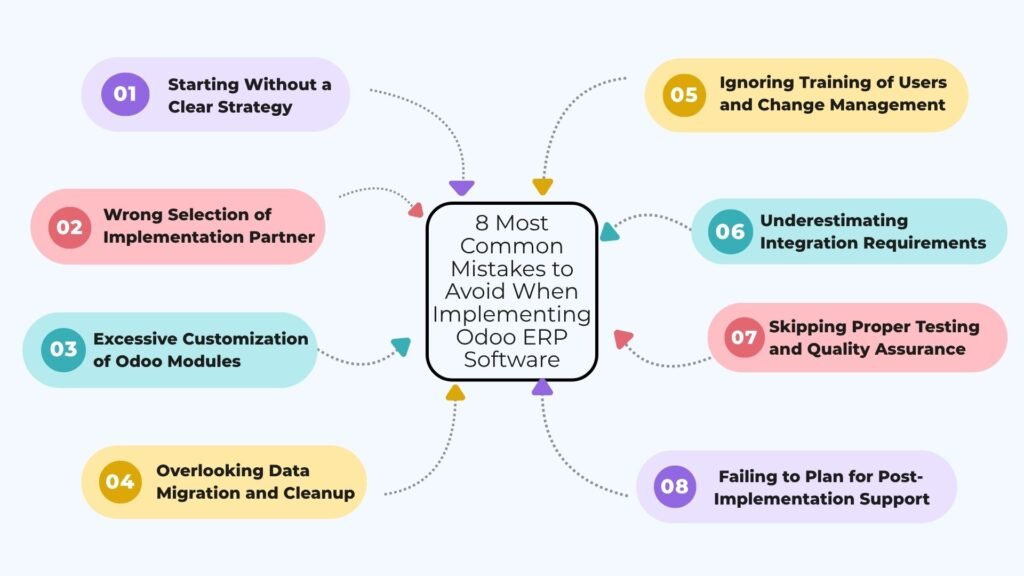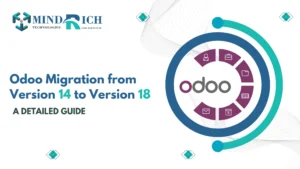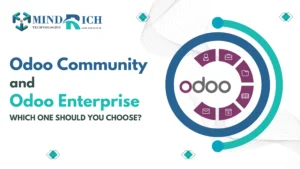The Odoo ERP software implementation can be the very thing that marks the turning point in the entire functioning of the company – that is, the manual workflows automating and the inter-departmental visibility boost. Nonetheless, if not adequately planned, the very same implementation could create chaos, ineffectiveness, and resource wastage.
Some of the most frequent missteps during Odoo ERP implementation are listed below along with some useful tips that can help you avoid them.
What Is Odoo Software?
Odoo is an ERP (Enterprise Resource Planning) software solution that is very sought after, particularly owing to its capability to support various business sectors in managing their core processes like sales, inventory, accounting, human resources, and more. The modular design is what makes Odoo so popular because the companies can select and adjust the applications to fit their particular requirements. Odoo’s intuitive interface along with its adaptability is what makes it a perfect ERP solution for small and big businesses that are looking to streamline their operations and increase their productivity.
Read in Detail: What is Odoo Software? The Ultimate Guide to Odoo ERP
Why Is Proper Implementation Important?
Going through the process of installing an ERP system like Odoo is not merely about the software installation. It is about taking the business processes back to the drawing board, tying up the different departments, and training the people in the right way so that they can make proper use of the system.
A bad implementation can lead to frustration, hold up the daily routines, and eventually, result in monetary losses. Therefore, it becomes even more important that the implementation of Odoo is carried out in a very thoughtful manner with the objective of reaping the maximum investment and enjoying the benefits for the long term.
8 Most Common Mistakes to Avoid When Implementing Odoo ERP Software

1. Starting Without a Clear Strategy
Going for Odoo ERP implementation without a proper roadmap is among the most common errors. Businesses often configure the modules or import the data only to realize later that they have not set their goals or identified their primary challenges. This usually brings about delays, rework or even project termination.
Tips to Avoid This Mistake:
- Set unambiguous, measurable objectives (for instance, “cut down manual reporting by half” or “purchase approvals via automation”).
- Make a thorough project plan together with milestones, roles, and responsibilities.
- Reach a consensus among all departments regarding the expected outcome of the ERP system.
- Designate a project manager or an in-house ERP advocate to monitor the implementation process.
2. Wrong Selection of Implementation Partner
Odoo ERP implementation success rate is closely linked to the skill and knowledge of the team that is implementing it. Collaborating with a vendor who has no experience or is not knowledgeable about your business processes can result in misconfiguration, poor tailoring, and wasting time and money on delays.
Tips to Avoid This Mistake:
- Select an Odoo-certified partner with documented success stories in your industry.
- Request recommendations and verify their past implementation success rate.
- Assess their communication and post-implementation support structure.
- Think of a long-term partnership rather than just the lowest price.
3. Excessive Customization of Odoo Modules
Although Odoo is highly adaptable, the customization of too much will lead to an unstable system and high costs of maintenance. A lot of companies try to reproduce their old processes instead of accepting Odoo’s built-in best practices which are just the opposite of modernizing.
Tips to Avoid This Mistake:
- Employ Odoo’s standard features as much as possible – they are made for cutting down time and resources.
- Do customization only if it is the last option for unique business requirements.
- Keep a record of all Odoo customizations for future upgrades and troubleshooting.
- Re-evaluate custom modules at regular intervals to confirm that they are still useful.
4. Overlooking Data Migration and Cleanup
Data migration that is not up to standard is one of the most significant factors leading to the failure of ERP implementations. Transporting messy, duplicate, or outdated data from the old system into the new one can result in reporting errors and misunderstandings after the go-live stage.
Tips to Avoid This Mistake:
- Audit and clean your existing data before migration.
- Inactive products, vendors, and customers should be removed.
- Data imports should be tested on a small scale prior to the full migration.
- Data owners should be assigned for the purpose of data accuracy and accountability.
5. Ignoring Training of Users and Change Management
No matter how good an ERP system, if users are not trained, it will still be a failure. A large number of companies do not realize how much trainers and the assistance of the staff will be required in the transition to the new system.
Tips to Avoid This Mistake:
- In-person training will be held before and after each go-live.
- Internal “super users” will be appointed in each department to give support to their colleagues.
- The advantages of Odoo ERP will be communicated to the team early on in order to get their acceptance.
- Post-launch supply with support plus refresher sessions will be continuous.
6. Underestimating Integration Requirements
Odoo needs integration with third-party tools like eCommerce platforms, CRMs, or external accounting systems very frequently. If the integrations are not appropriately planned beforehand, then there will be gaps in the processes, and data will have to be entered twice, and the whole thing will be inefficient.
Tips to Avoid This Mistake:
- Before going for implementation, find out all tools and systems that need to be connected with Odoo.
- Integrate it smoothly by using Odoo’s open API and built-in connectors.
- Do the complete testing of integrations before the go-live.
- Keep a record of all integrations for easy maintenance and troubleshooting.
7. Skipping Proper Testing and Quality Assurance
One of the typical mistakes that creates a lot of problems after the launch is rushing testing through to meet deadlines. One can get broken workflows, inaccurate reports, or financial discrepancies as a result of insufficient testing.
Tips to Avoid This Mistake:
- Involve User Acceptance Testing (UAT) with actual business scenarios.
- Test all integrations, permissions, and data flows before deployment.
- Simulate high-traffic or peak periods to check system performance.
8. Failing to Plan for Post-Implementation Support
The end of implementation is just the beginning of the continuous process of live production. One of the reasons businesses fail is that they forget to carry out day-to-day maintenance, make upgrades, and provide support to users. Continuous improvement is a must; otherwise, even a good ERP system will be of no use in the future.
Tips to Avoid This Mistake:
- Establish a support plan that covers bug fixes, updates, and new feature rollouts.
- Schedule regular review meetings to discuss and identify process improvements.
- Keep your Odoo system in line with the latest stable version.
- Collect user feedback periodically and respond to it without delay.
How MindRich Can Help in Successful Odoo ERP Implementation?
At MindRich Technologies Pvt. Ltd., we acknowledge the fact that every business is different. The skilled personnel of our company work hand in hand with you to understand the existing processes, create a custom implementation plan, and set up Odoo to meet those needs. We make it a point to provide comprehensive training to users and manage the transition in order to smoothen the process of company-wide adoption.
We also offer post-implementation support that lasts indefinitely, and we perform regular audits to help modify the system according to the changes in your business. Teaming up with MindRich not only saves you from the common pitfalls but also lets you take full advantage of the Odoo ERP software. Our skilled practitioners will convert those ERP challenges into success tales.
Final Words
Careful planning, the right partner, and ongoing support are the key factors in the successful implementation of Odoo ERP software. The mistakes that are commonly made, such as poor planning, wrong partner selection, inadequate training, and neglecting updates, will only decrease your chances of a smooth and effective ERP adoption.
Odoo’s flexibility and powerful automation can provide substantial benefits to businesses in India and around the world – if implemented properly. Collaborating with companies like MindRich who are experts in the field makes sure your ERP journey is smooth and outcome-oriented. Set aside the time today that is required to secure the success of your Odoo project in the long run.












